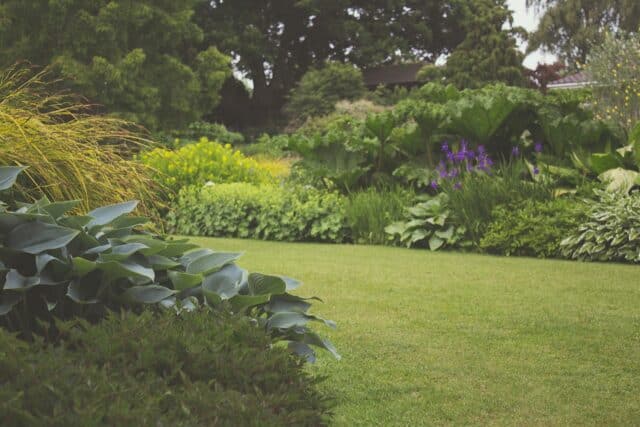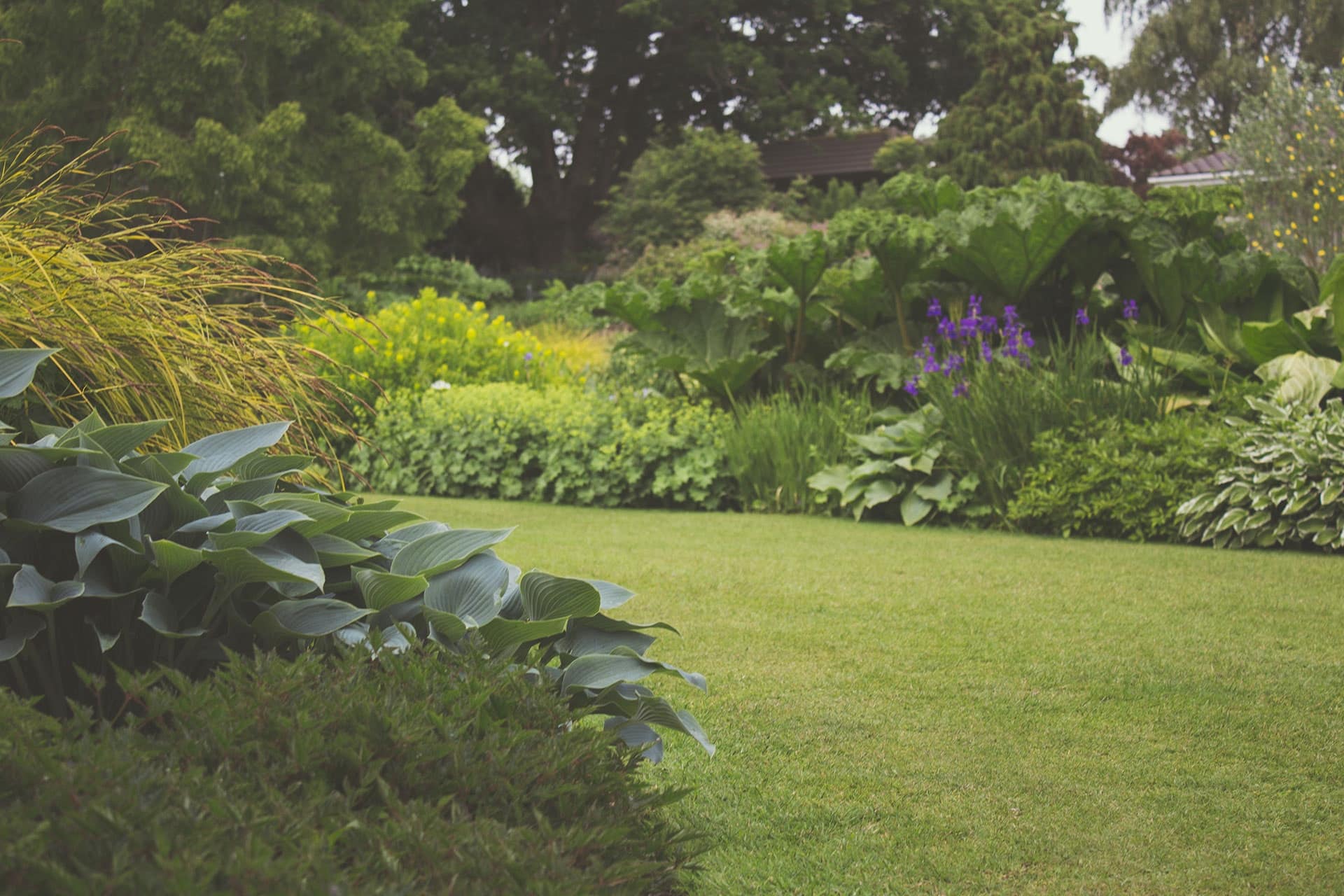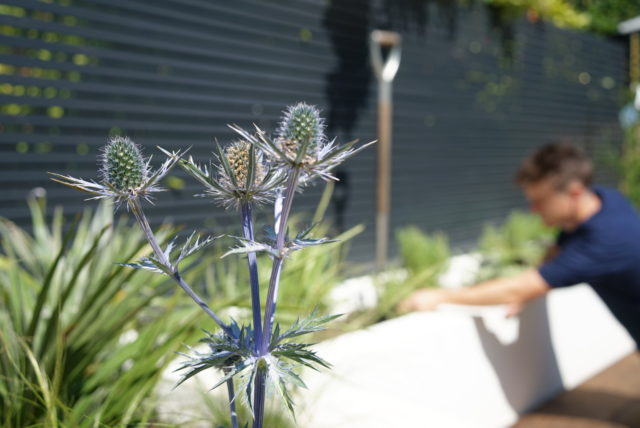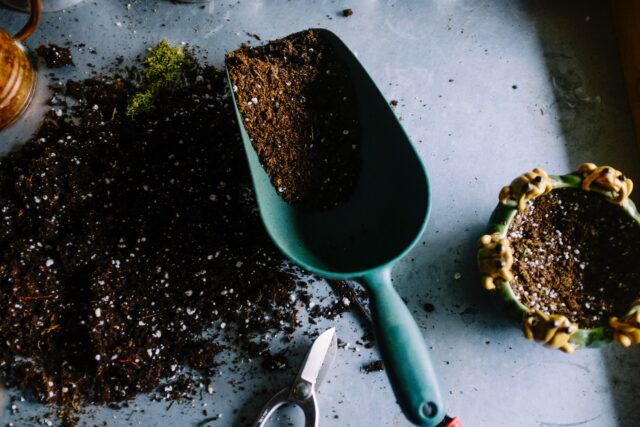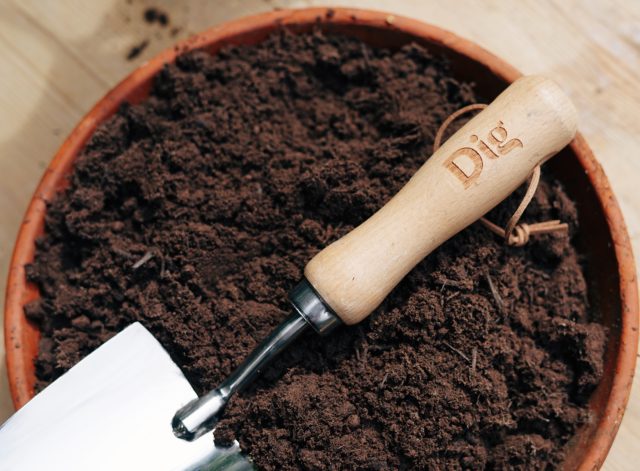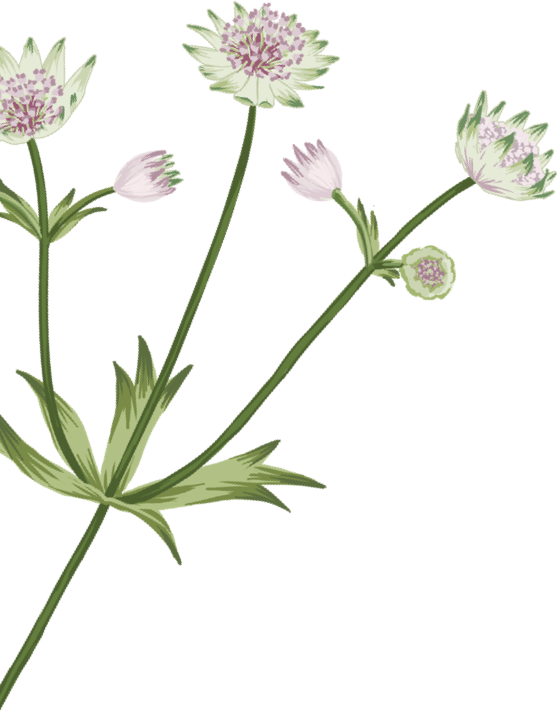We’ve detailed a few helpful easy-to-achieve jobs below – and be sure to check back on last month’s too for even more. Gardening shouldn’t be a daunting or worrying prospect and many of these jobs can be undertaken on loose time frames. A good rule to live by with gardening jobs is that they can probably wait until next week… but not next month.
Supporting your plants
Where I live, the wind tears between the buildings and past my balcony which can be devastating for certain plants. I lost a beautiful potted dahlia to the wind a few years back and vowed not to let it happen again. Giving taller plants some additional support, particularly if you live in a windy area, can do a lot to prevent wind-damage and now is a great time to install some support before things get too big. Bamboo canes, tied together at the top with twine and arranged into in a pyramid shape over the top of a plant (from climbing Clematis, to taller plants such as Digitalis, or Thalictrum) can give more delicate plants shoulder to lean on whilst they establish and strengthen for summer – which you can remove later in the year.
Tying up climbers
Climbers that are growing against fences or pergolas will be beginning to grow much more actively around now and can therefore need an extra bit of support and training. If you see any loose strands flying around, tie them loosely where you’d like them to hang with some garden twine (available at garden centres) or even general purpose string. Try not to tie them too tightly to avoid damaging the plant.
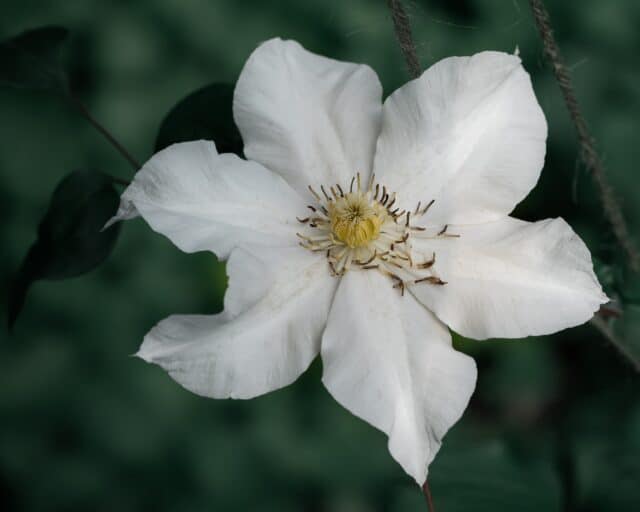
Early flowering Clematis like this “ninon” can be supported using plastic-free garden twine
An eye on nature
April is mating season for garden birds with birdsong at its peak in April and May. Garden birds will be incredibly active at this time, pairing up, building nests and incubating eggs before raising young. Popping up a feeder with mixed seed is an easy way to support your local bird community with high protein food and, as an added bonus, the young birds these seeds will feed will, in turn, feed on a lot of the insects that might be inclined to tuck into your plants. The food chain’s a wonderful thing.
Avoid food with fat during spring and summer though, such as fat balls. These can risk going rancid in the sun so we recommend sticking to dry seeds until the colder months return.
Now is also a great time to install a bird box if you haven’t already. These safe havens provide vital nesting environments for a variety of different birds. The Royal Society for the Protection of Birds website has a huge selection that will help you encourage in your favourite feathered friends later in the season.
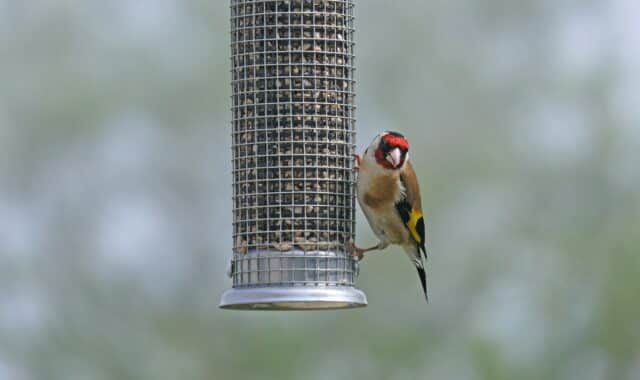
Want to attract goldfinches? Try Niger seed. They go wild for it.
Regular weeding
Don’t forget to keep on top of weeding. Cast your eye over your garden, take a look around the bases of plants, and remove anything uninvited by hand (with gloves), making sure to pull out the entire root if you can to avoid it returning. This will leave more nutrients for your chosen plants and keeps things looking tidy. Mulching around the bases of plants with compost or bark chippings once you’ve weeded keeps things looking smart and suppresses future weed growth.
Planting summer bulbs
If you are planning on a bit of extra colour in summer, get your summer bulbs planted by the end of April if you can. This will give them enough time to bed in before emerging in a few months’ time to give you garden an extra spray of life later this year. Some great options for summer flowering bulbs are Crocosmia with its flaming red blooms, Alliums with their lollipop purple or white bee-magnet heads, or the beautiful pastel shades of Freesia. If you’re unsure what you can add to your Dig garden, just drop us a DM on Instagram or an email at hello@digclub.co.uk
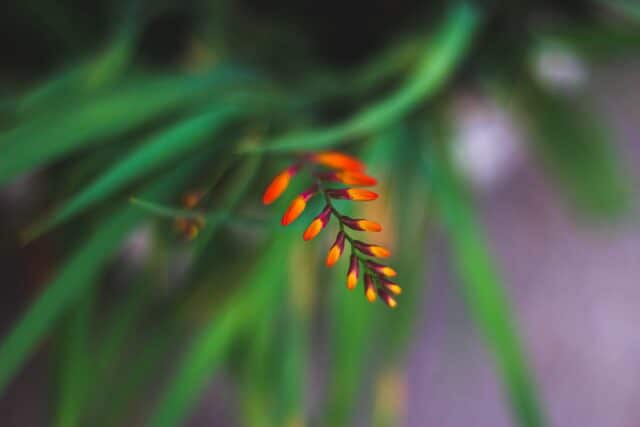
Fiery red Crocosmia which flowers in summer if planted now
Investing in your daffodils for next year
Once daffodils are finished flowering, remove the flower heads from the top of the stems with a pair of snips or secateurs. This stops energy being wasted on growing seeds and focuses on letting the leaves photosynthesize, filling up next year’s bulbs instead – like charging a battery. Keep them watered through this period and it can’t hurt to give them a feed too. Tomato feed (available from garden centres and supermarkets) is high in potassium and great for feeding bulbs for next year’s blooms.
Give your lawn a feed
Spring is a great time to think of your lawn – ready for lounging on in summer. Sprinkle a lawn feed (readily available from most garden centres and supermarkets) and give it a good watering in to ensure healthy growth and minimal bare patches. Consider leaving a few areas unmown in spring too – the wildflowers that might be hiding under the surface are vital for insects, and the longer grass can provide a useful habitat for all manner of wildlife. We’ll be talking about a great campaign to support wildlife, #NoMowMay, later this month here and on our Instagram but if you want to start now it really is a case of doing what it says on the tin and stopping mowing for this peak month for wildlife activity.
